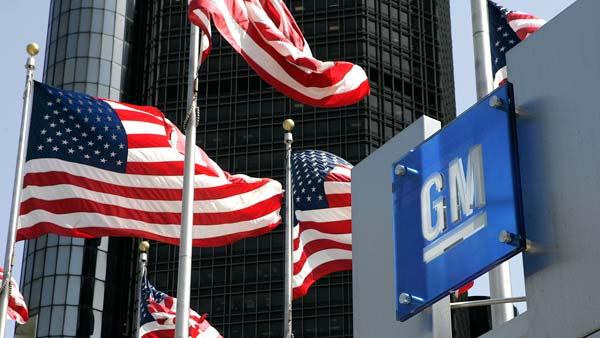One thing the latest General Motors recall tells us: corporate greed still outweighs public safety
It would have cost General Motors less than $1 to fix the problem that prompted a massive recall of nearly a decade’s production of a variety of compact cars, and at least 13 deaths.
According to a story published on the Reuters web site, changing the ignition switch that lies at the heart of the problem would have cost about 90¢ plus about $400,000 in additional retooling costs. Tooling costs are typically amortized over several years.
In certain Cobalt and Ion models, the faulty ignition switch would move out of the run position when jarred or if weighted down by a heavy key ring. This would shut off electrical power to the car, including power assisted steering and brakes and, critically, the front airbags.
GM acknowledges that as many as 13 fatal car wrecks may have resulted but industry watchdog groups contend that the defective switches have contributed to more than 300 traffic fatalities since the company first learned about the problems more than a decade ago.
In recent days, several national media organizations have provided some excellent reporting on the time line including The Wall Street Journal and the New York Times. Mashable.com even chimed in with this excellent “why care?” piece.
But this chilling excerpt from a story on National Public Radio really demonstrates the extent for the problem with the Cobalt.
“A Moment Of Panic”
The car is currently the subject of about a half-dozen investigations. Even if more than 1 million Cobalts were not being recalled, the cars would still have a bad reputation, simply for not being a quality vehicle.
Scott Oldham of Edmunds.com says that’s hindsight. “At the time, in the context of what GM was making before the Cobalt, it was seen, for the most part, as a giant leap forward,” he says.
Oldham remembers test-driving the Cobalt at an event for journalists and industry analysts when the car was being launched a decade ago. He drove on the track with an engineer in the passenger seat.
“And I remember coming up to a curve, and I moved my foot, and as I moved my foot, my knee kind of pinned this key fob between my knee and the steering column,” Oldham explains. “And when I hit the brake, my leg moved down. And it basically pulled the key down and shut the car off.”
The systems that were connected to the engine just stopped working.
“There was this moment of panic where I said, ‘Oh my God, the steering isn’t working,’ ” he recalls. “I got the car slowed down and pulled to the side. Catastrophe was avoided.”
About 10 miles later, it happened again.
Oldham and the engineer stopped at the side of the road to try to figure out what had happened. Finally, he recalls, they realized what was going on.
“I would start the car and then just with my hand, just pull down on that key fob just ever so slightly,” Oldham says. “And sure enough, I could turn the car off. And we looked and each other, and I go, ‘That seems like a little bit of problem.’ “
That was in 2004.
Remember, 27 people were determined to have been killed in rear-end-crash explosions involving Pintos.
This nearly brought down Ford Motor Company in the late 1970s. A $1 part would have prevented the car wrecks that caused the deaths. GM had a similar problem in the 1960s with the Corvair — the car that made Ralph Nadar famous and also nearly brought down a major US auto manufacturer.
From a Slate article this week:
For the past 50 years, too many corporate leaders in the auto industry as well as in the food, pharmaceutical, firearms, and other industries have chosen to follow the playbook written by the tobacco industry. They have challenged the evidence justifying regulation, exaggerated the economic costs of safer products, and used their political and financial clout to defeat public health policies and underfund the agencies charged with enforcement. These behaviors have become so normalized they seem inevitable rather than immoral or criminal.
Auto makers, along with all the other major corporate players, are essential to our economic well being. However, when these companies fail to be good neighbors and good corporate citizens, when they put profit over safety, they must be held accountable.
If you our someone you love has been harmed as the result of wreck caused by a faulty ignition switch or negligence of any other sort, let us help.


